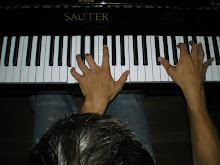Im currently employed writing a dull paper about one section of Thomas Kuhn's Structure of Scientific Revolutions, and all these things in it, the stories it contains and detailed descriptions of the changes that went along with scientific discoveries that overturned previous assumptions, how that relates in so many ways to artistic breakthroughs - The controversies, the inevitable conservatism and backlash that comes with breaking with the established system, the pattern just repeats and repeats, on and on. Sometimes the reactions are more violent and angry than others - Copernicus, Galileo, and some times they just end up with mere debates within science itself. Another pattern that repeats over and over again (from Copernicus all the way up) is that the discoveries of younger generations are nearly never accepted by the older generation, its amazing really how prevalent this pattern is.
Needless to say, Dalton's conclusions were widely attacked when first announced,
and Berthllot, in particular, was never convinced...
And the other thing which relates is directly to minimalism itself. Glass' works here reflect on Kuhn's notion of a paradigm shift. (he invented the phrase, now common, in this text) but i cant think of a better kind of musical equivalent. 12 parts in particular, there is an establish paradigm for the music, this one symmetrical concept that we hear and feel and through the repetitions learn very (sometimes too) well, it goes on and feels so absolute, unchanging and then suddenly that musical paradigm shift, a split second of confusion, of revolution where what we thought was so regular and symmetrical suddenly feels so irregular, and it feels as if the earth has just moved under us. Just as Kuhn says, the old paradigm is replaced by a new one, repeating, then once more we get to know this new paradigm and its symmetries soon become clear to us... and then another shift and another paradigm comes to replace the old, sometimes these shifts are more dramatic, sometimes less, but they are always perceptible. Its a kind of cycle that pushes the music forward, despite the stagnant harmonies and repetitive rhythms.
This is the history of art too, as made clear by this juicy bit about some minimalist-hating berkeley professor. The Death of civilization? they said that about stravinsky too. How flattering!
_ _ _ _
Its a great book dont get me wrong, its just not fun to write about.

2 comments:
You gotta remember though that however pleasing the analogy may seem, music -- like any art -- isn't a science. In my opinion, the efforts of academics to treat music as a systematically-explorable scientific field in the middle of the 20th century (e.g. total serialism, IRCAM noise machines, the contents of any issue of Perspectives of New Music) led to the art music crisis that continues to this day. The horror of the 'aristocratic professor' isn't that of a Hook discounting a Newton, but rather a Jackson Pollock discounting a Lichtenstein.
Oh dont worry, i know music is not a science, i know its not a field of scientific-like progress. I completely understand and agree with the claim that the crisis today is getting over that stigma of modernism, so i wasnt aiming it in that direction.
Post a Comment